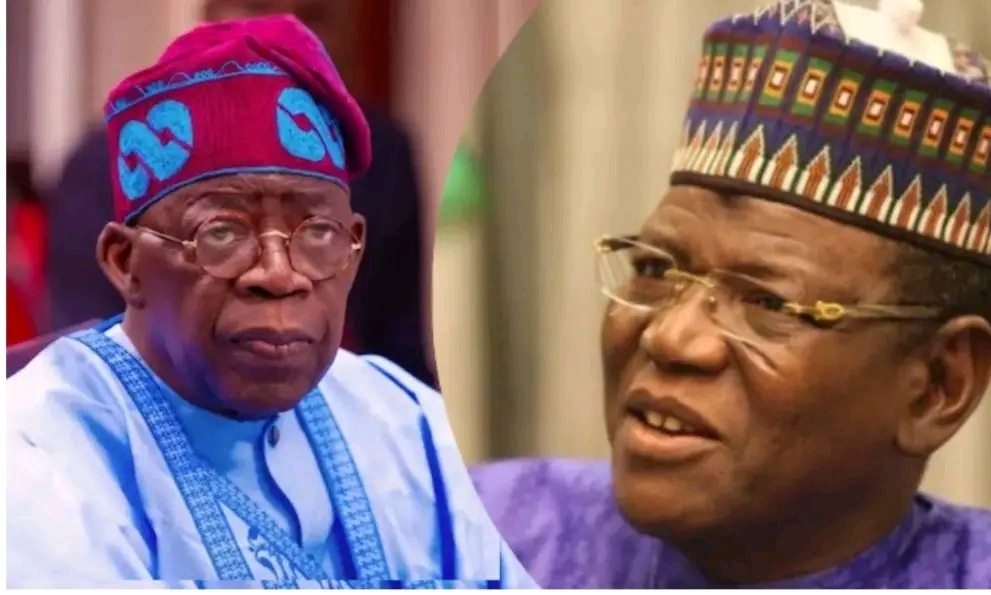The Presidency has firmly refuted allegations made by former Jigawa State Governor, Alhaji Sule Lamido, concerning President Bola Ahmed Tinubu’s role in the June 12, 1993, presidential election and its subsequent annulment.
In a statement issued on Sunday, June 22 by the Special Adviser to the President on Information and Strategy, Mr. Bayo Onanuga, which was obtained by Westernmirror.com.ng, the Presidency described Lamido’s remarks as “revisionist, misleading, and historically inaccurate.”
Recall that during a recent television appearance, Lamido had accused President Tinubu of supporting the annulment of the June 12 election and alleged that his late mother, Alhaja Abibatu Mogaji, mobilized market women in favour of the military’s action.
The Presidency has categorically denied these claims, asserting that they amount to a “distortion of history and a regrettable attempt at political revisionism.”
“Let us set the record straight: Alhaja Mogaji never mobilised market women to support the unjust annulment. Had she done so, she would have lost her position as market leader in Lagos,” the statement clarified.
The statement highlighted Tinubu’s active opposition to the annulment as early as August 1993 while he served as Senator representing Lagos West.
Following General Ibrahim Babangida’s announcement of an interim government and his decision to “step aside,” the Nigerian Senate convened to debate the unfolding crisis.
According to the statement: “On August 19, 1993, Senator Tinubu delivered a scathing condemnation of the annulment on the Senate floor.
“We have a situation that suggests that the abortion of the June 12 election is another coup d’état. The present military administration, by virtue of abrogation and violation of its own decree, has committed a crime,” he said.
The Presidency stressed that Tinubu was one of the few political figures who challenged the military’s decision at the time, contrasting this with Lamido’s role as National Secretary of the Social Democratic Party (SDP), the party whose candidate, Chief MKO Abiola, won the election.
“Rather than fight for Abiola’s mandate, Lamido and SDP Chairman Tony Anenih shamefully surrendered to the junta, even aligning with the defeated NRC to bury the people’s will,” Onanuga said.
Following General Sani Abacha’s coup on November 17, 1993, democratic institutions were dissolved. Tinubu, along with a few senators, attempted to resist the new military order, reconvening in Lagos and later facing arrest and prosecution by the police.
The statement recounted how Tinubu, even while in detention, funded pro-democracy protests, including the Third Mainland Bridge blockade. As Abacha’s regime hardened its stance, Tinubu was forced into exile, where he continued to support the struggle through NADECO (National Democratic Coalition) and Prof. Wole Soyinka’s NALICON.
“Tinubu lived in exile for nearly five years, providing material support to journalists, activists, and fellow exiles,” the statement revealed. “Meanwhile, Lamido and his ilk made deals with Abacha and remained in Nigeria.”
NADECO, established in 1994, became the primary political platform challenging Abacha’s rule and demanding the recognition of Abiola’s victory. Tinubu was noted as a key financier and strategist in the group’s operations.
Onanuga’s statement criticised Lamido’s remarks as being driven by envy and political bitterness, branding him a member of the “Coalition of the Disgruntled” bent on attacking President Tinubu’s democratic credentials.
“We do not want to believe that Alhaji Lamido suffers from what psychologists call ‘tall poppy syndrome, but the conclusion is inevitable given his attempt to diminish Tinubu’s democratic legacy,” Onanuga said.
He urged Lamido to “check his facts before spreading falsehoods on national television,” stating that such actions do not serve the nation’s interests and risk misleading younger generations about Nigeria’s democratic history.
“President Tinubu was, and remains a steadfast advocate for democracy, unlike those who capitulated to military oppression, he stood firm, paid the price, and helped lay the groundwork for the democracy we now enjoy,” the statement concluded.

